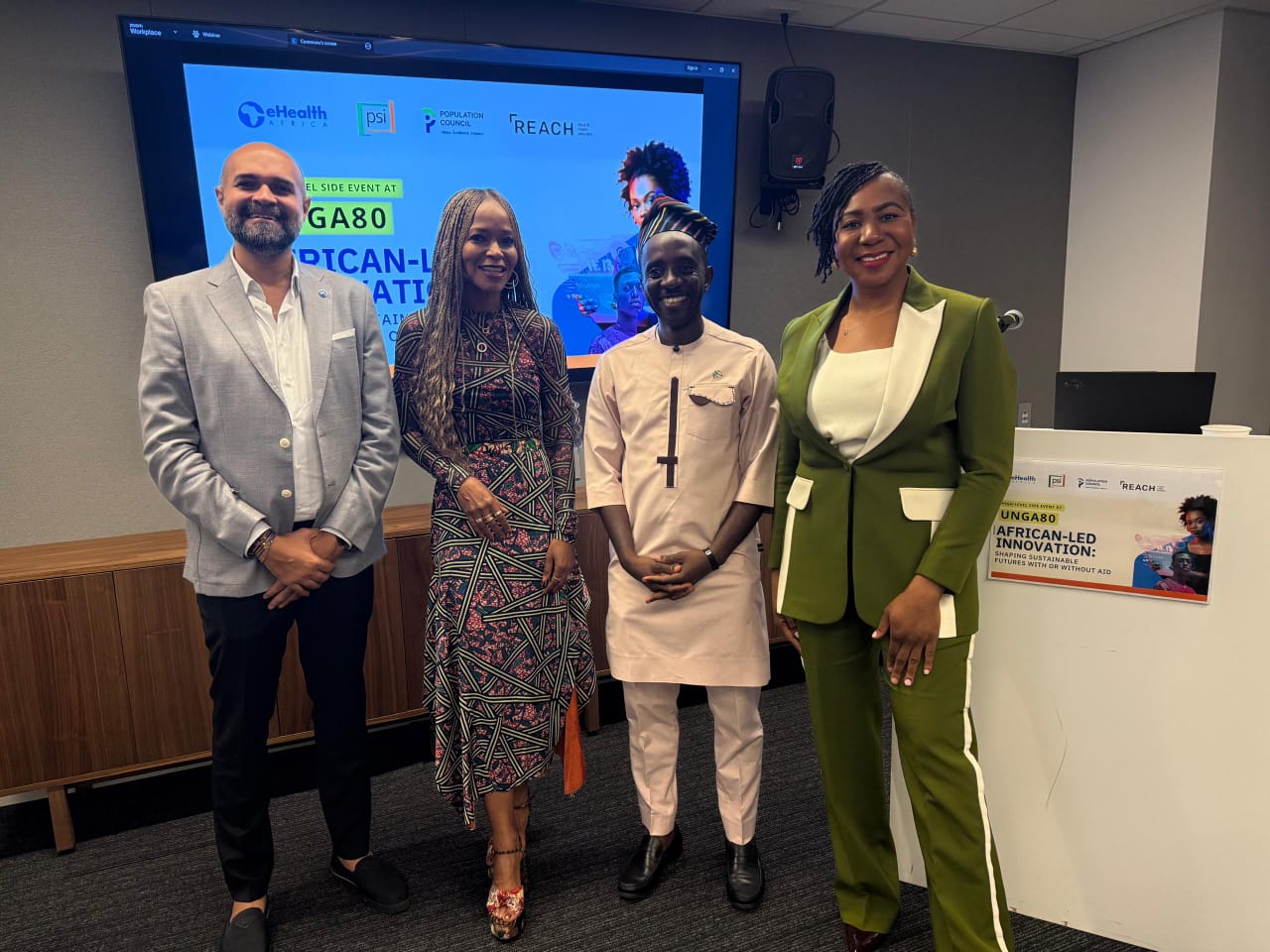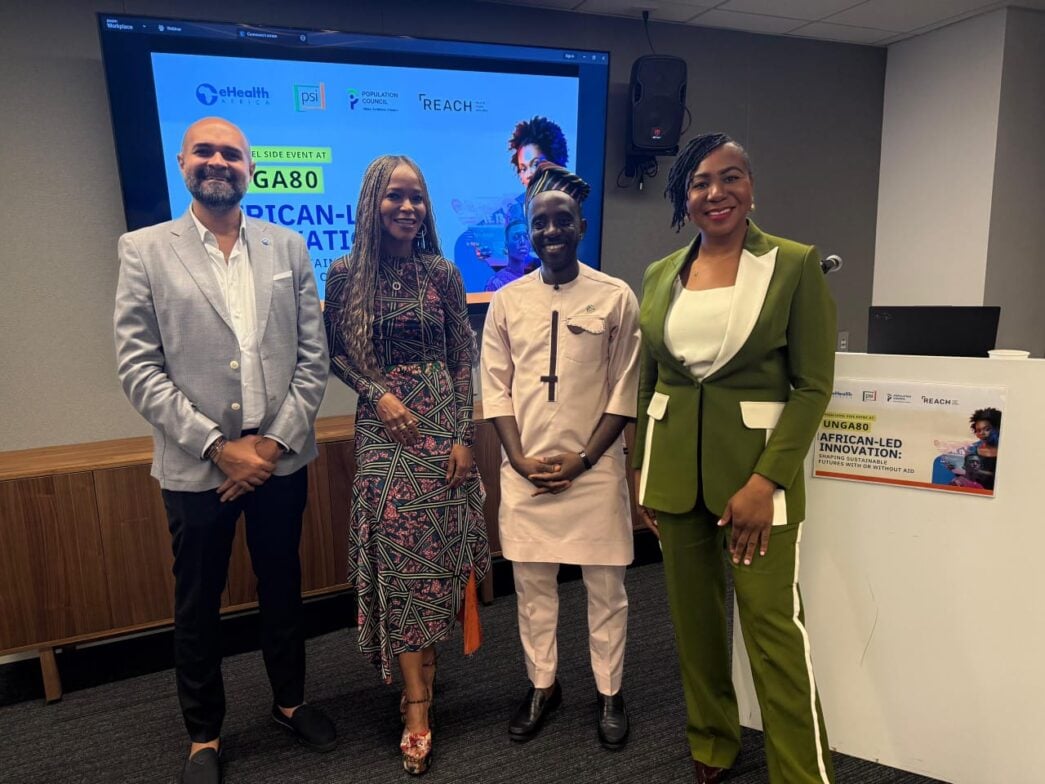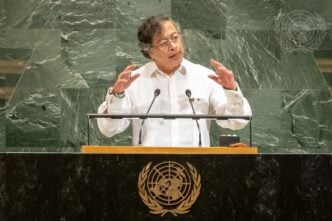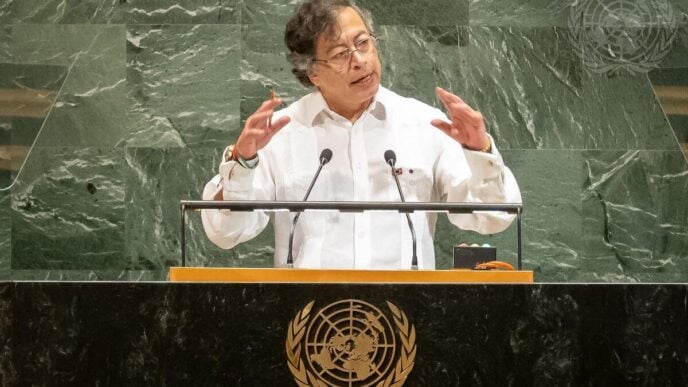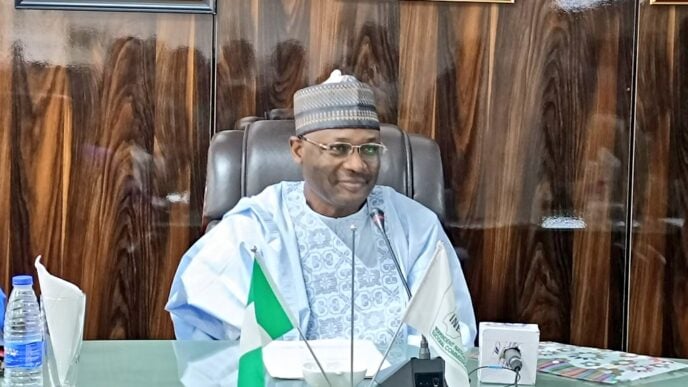Stakeholders at the 80th United Nations General Assembly (UNGA) have called for African-led innovations that are not dependent on aid from foreign organisations and countries.
The stakeholders spoke at an event co-hosted by eHealth Africa, Population Services International (PSI), Population Council, and Reach Digital Health.
The dialogue was themed: ‘African-led innovation: Shaping sustainable futures with or without aid’.
Atef Fawaz, executive director of eHealth Africa, said the world is evolving very quickly, adding that this year has accelerated discussions about how to remodel development on the African continent.
Advertisement
“When we say ‘with or without aid’, we are not rejecting partnerships. We are saying that partnerships must be aligned with Africa’s priorities,” Fawaz said.
“It’s not about others bringing ready-made solutions to us, but about us co-designing sustainable solutions together.”
He added that Africa is poised to become one of the top 10 to 20 emerging markets within two decades, urging investors and young people to look towards the continent.
Advertisement
“My message to the younger generation is: look into Africa, invest in Africa—whether in health projects or tech. There is so much potential and talent here, and that’s what we are pushing forward,” he said.
Chernor Bah, Sierra Leone’s minister of education, who moderated the dialogue, said aid has shaped health, innovation, and development in the continent for decades, but often without African ownership at the centre.
“In many ways, this created systems that were never truly ours. But Africans have always innovated. Innovation is part of who we are—born out of necessity and the inequities we’ve had to overcome,” he said.
Bah said a new era has come where Africa designs its own future, noting that the continent’s ideas and creativity lead the way.
Advertisement
“How we collaborate across government, the private sector, civil society, and communities will determine whether we succeed in reclaiming our sovereignty,” he said.
Ola Brown, founder of HealthCap Africa, highlighted the role of catalytic funding in scaling local innovation.
“When you look at the US, 75 percent of new drugs trace back to government-funded research. But private capital scaled those innovations. In Africa, governments face capital constraints, so the model may look different,” Brown said.
“When we invest in healthcare innovation in Africa, we don’t just create a healthier continent; we create a healthier world.”
Advertisement
On her part, Debbie Rogers, the chief executive officer (CEO) of Reach Digital Health, said Africa’s constraints are a source of strength.
“In Africa, constraints aren’t barriers—they’re opportunities. They force us to innovate differently, and often better,” she said.
Advertisement
“Our MomConnect programme in South Africa has reached five million women in 95% of clinics. But the statistic I’m proudest of is that 98 percent of women recommend it to others. When people love a service, it scales naturally.”
Advertisement
